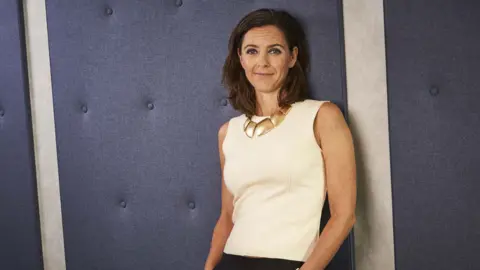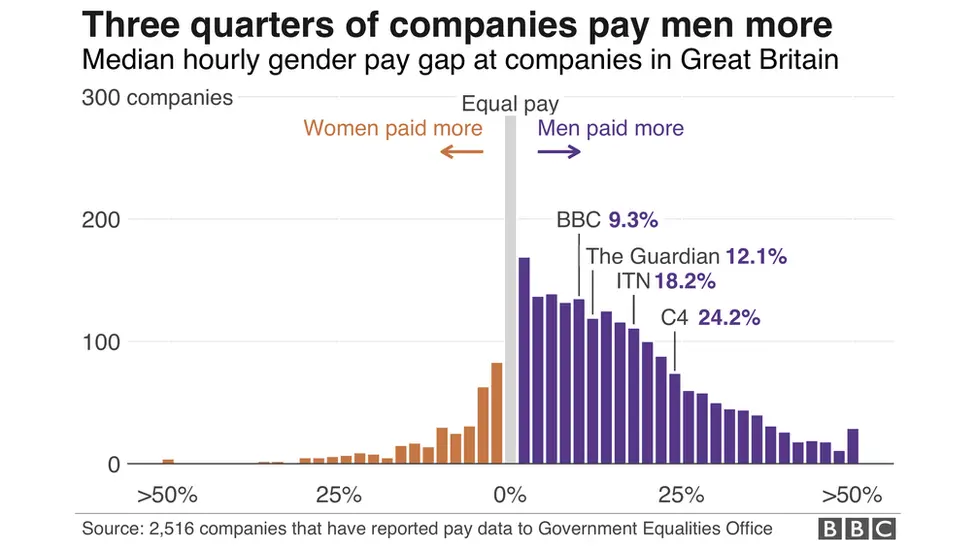Channel 4 has gender pay gap of 24.2%
 Adam Lawrence
Adam LawrenceChannel 4 has revealed it pays its female staff almost a quarter less than its male staff on average.
Its 24.2% median gender pay gap is above the 18.4% UK average, and comes despite the broadcaster's workforce being nearly 60% female. Channel 4 also said it had a bonus gap of 47.6%.
It comes a week after ITN, which makes programmes for ITV, Channel 4 and Channel 5, revealed a pay gap of 18.2%.
Channel 4 boss Alex Mahon said the news made for "uncomfortable reading".
In a report, the broadcaster blamed the pay discrepancy on there being a large number of women in the lower two quartiles at the organisation, while most jobs in the highest-paid quartile were filled by men.
Ms Mahon, who joined Channel 4 last year, said she was "determined to take action".
"There is no quick fix, but identifying the complex and multiple reasons behind our gap is the first step towards tackling the fundamental issues at play," she said.
She added that while the broadcaster employs "significantly more women than men there is an imbalance in the ratios at the higher and lower-earning parts of the business".

Ms Mahon said the broadcaster would focus on "increasing the proportion of women in higher-paid roles".
It aims to have a "50:50 gender balance" among its top 100 earners by 2023.
Other media organisations have reported their median gender pay gaps recently, including the BBC at 9.3% and the Guardian newspaper at 12.1%.
Broadcasters ITV and Channel 5 have yet to publish their figures.
Broadcaster pay has been in the spotlight since the BBC published the salaries of top talent last year.
Radio 2's Chris Evans topped the list on more than £2m, while the highest paid woman was Claudia Winkleman on between £450,000 and £499,999.
A review of presenter pay for the BBC, carried out by PwC, said there was a "lack of clarity and openness about the basis for pay decisions".
But it found "no evidence of gender bias in pay decision-making".
BBC Women, a group that includes presenters such as Mishal Husain and Victoria Derbyshire, have rejected the report's findings.
The BBC's former China editor Carrie Gracie also resigned from her role in protest at inequalities.
